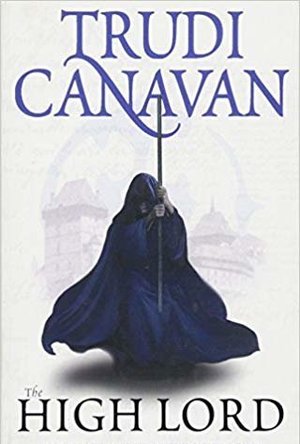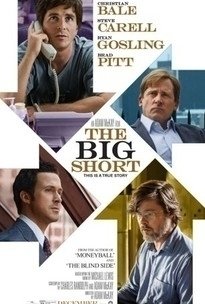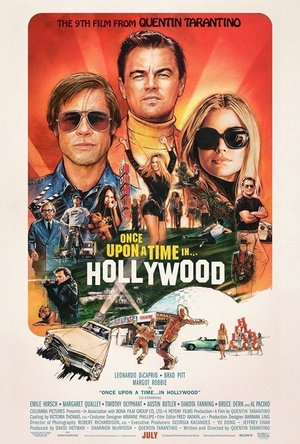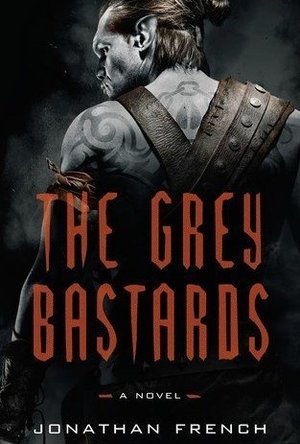The Actors' Crucible: Port Talbot and the Making of Burton, Hopkins, Sheen and All the Others
Book
The town of Port Talbot has long been seen (quite literally) as synonymous with the steel industry....
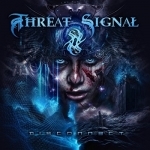
Disconnect by Threat Signal
Album Watch
Since their critically acclaimed debut offering "Under Reprisal" (2006), which won the "Canadian...
rock
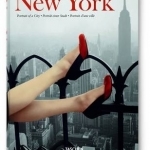
New York, Portrait of a City
Book
This book presents the epic story of New York in photographs, photo-portraits, maps, and aerial...
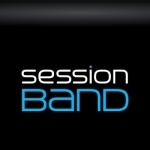
SessionBand Original
Music and Entertainment
App
Anyone can create pro-quality music in minutes with the world's only chord-based audio loop app. And...
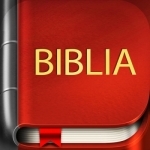
Bible Reina Valera
Book and Lifestyle
App
Bible in Spanish RV (Reina Valera) Version: Reina Valera - Offline do not need an internet...
The Bandersnatch (199 KP) rated The High Lord (Black Magician Trilogy, #3) in Books
Nov 7, 2019
My opinion of this book was that of a decent conclusion to a good storyline. I do think however that the love storyline between Sonea and Akkarin is a little cliché. Otherwise It was a decent book. I have to admit the fighting between magicians would make a decent movie montage.
Born in Kew, Melbourne Australia on October 23rd 1969 Trudi Canavan spent her formative years being extremely creative in the suburb of Ferntree Gully. Canavan decided to become a professional artist and went to the Melbourne college of Decoration achieving an advanced certificate in promotional display as well as an award for the highest aggregate mark in art subjects in 1988.
During the early 1990's Canavan worked for the Australian magazine Aurealis (a magazine for Australian science-fiction and fantasy work) as well as starting her own business The Telltale art which specialised in graphical design services. By working for Aurealis Canavan was able to write in her spare time.
In 1999 Canavan managed to win the Aurealis award for best fantasy short story with whispers of the mist children and cementing her work further with the release of the Magicians Guild in 2001 (book one of The Black Magician trilogy) the successive books The Novice (2002) and The Black Magician (2003) brought Canavan both widespread acclaim and nominations for both the Aurealis best Fantasy novel and Best Novel Ditmar Category. All three books ended up in the top ten Science Fiction books for Australia.
Canavan's second Trilogy Age of Five was also well received with the first book reaching No3 in the Sunday Times hardback fiction best sellers list and staying in the top ten for six weeks. Canavan went on to write a prequel/sequel to the black magician trilogy known as the magicians apprentice in 2009 this was followed by the traitor spy trilogy which was released between 2010 and 2012. Trudi Canavan now holds a vast array of written works under her belt which can be split into three book series and a group of short stories.
My opinion of Trudi Canavan is that she is a very dedicated writer. Excellent with detail and writing a strong character and story. I definitely respect her work ethic since she is both a writer and a graphic designer. I definitely would love to talk with her and have a discussion about books and writing in general. She is up there with Prof J. R. R. Tolkien, George R. R. Martin and Lewis Carroll in my books.
And there you have it a book for all the ages, definitely under the banner of Quality reading, I am positive this trilogy could end up being the NEXT it thing if they were ever made into a Movie Trilogy.
BankofMarquis (1832 KP) rated The Big Short (2015) in Movies
Apr 19, 2020
That person was Adam McKay - up until that time, known as the Director of such Will Ferrell films as STEP BROTHERS and ANCHORMAN.
Set in the timeframe right before - and during - the economic downturn (approx. 2006-2008), THE BIG SHORT follows 4 groups/individuals that begin to see that something is wrong - both with this seemingly "bullet proof" housing market and the institutions/regulations and governance around them.
Christian Bale is outstanding (and was nominated for an Oscar) for his work as Dr. Michael Burry a socially awkward genius who is the first to ferret out that something is wrong and "bets against the market". Bale's portrayal of a non-social (almost) recluse who speaks his mind is engaging and fascinating to watch. It was with this performance that I decided that Bale is, perhaps, the finest actor working today. Also stepping up his game - as a surprise to me - is Ryan Gosling as the narrator of this story. He has the right balance of charm and "smarminess" and often breaks the 4th wall to explain to us what is going on. Also on board, strongly, is Brad Pitt (one of the Producers of this film) as an ex-Wall Street maverick who is pulled back in by the opportunity this impending crash is creating.
But, the surprise to me in this film is the heart-breaking, gut-wrenching turn of Steve Carrell as Wall Street broker Mark Baum who's caustic personality hides some serious scars underneath and who takes the failures of "the system" to protect the people personally. Carrell was nominated for an Oscar the year before in his first major dramatic turn - FOXCATCHER - but I think his work here is stronger, more layered and nuanced and (if there is a hero in this story) had you rooting for this guy throughout the film.
But...none of this would have worked if McKay didn't figure out a way to make the boring-ness and tedium of explaining the housing financial system (tranches, CDO's, default swaps, etc) in such a way that educates and entertains the audience - and find a way he did. By pulling celebrities like Anthony Bordain, Selena Gomez and Margot Robbie in to break the 4th wall and explain extremely dry subject matter in such a way as to make it understandable and enjoyable, he makes this film succeed.
And, succeed it does, as it's 5 Oscar nominations (including Best Picture, Best Director and the aforementioned Best Supporting Actor nomination for Bale - a nomination that I would have been happy had Carrell gotten) would attest to - it did win the Oscar for Best Adapted Screenplay (for McKay and Charles Randolph).
This is a film that gets better for me on each rewatch, for I understand just a little more. If this is your 1st time watch - or your 10th - check out the BIG SHORT, it will be worth your time.
Letter Grade: A
9 stars (out of 10) and you can take that to the Bank(ofMarquis)

NIV Study Bible
Book and Reference
App
Welcome to the all new, full-color NIV Study Bible! The world's bestselling, most comprehensive...
Emma @ The Movies (1786 KP) rated Once Upon a Time in Hollywood (2019) in Movies
Jun 20, 2020
I'm not going to do an extended synopsis for this, partly because I'm not sure what the point was to a lot of it. 2 hours and 41 minutes is a lot of time to fill with such random stuff. There are essentially to films here, and I definitely would have wanted to watch one of them. It doesn't matter how many times I think about this film, I can't make sense of why these stories were put together.
There's a lot of acting talent in this, obviously. I'm not a particular fan of DiCaprio, I can't give you a real reason behind that. I don't mind some of his older films but recently nothing has really caught my eye. He has some excellent moments in this though. I particularly liked the scene where he's on set explaining the story of his novel to his young co-star. The audience and Rick are able to reach the realisation at the same time, it's a moving moment that was annoyingly ruined for me by Trudi's lines afterwards. I guess it does reflect the way Hollywood is though so in that respect it was spot on.
Brad Pitt swooped in and stole the show though. There's a very laid back and sometimes cheeky sense to Cliff, and most of his scenes had me engaged with what was going on. The only thing I would say though is that occasionally you just see Brad Pitt and other characters he's portrayed in this performance. He really does have a strong presence though and apart from those small blips he was by far the best performance of the film and my favourite scenes were his fight with Bruce Lee and the last ten minutes. Both of these were done so well and Pitt's reactions were perfect.
The cast has a lot of bit parters in it, I'm never quite sure what gets something classed as a cameo over a "proper" role. As we're in Hollywood there are obviously a lot of Hollywood stars making appearances and they've all got really strong casting behind them, but they barely get any screen time. We get some Sharon Tate background from Steve McQueen (Damien Lewis) at a party, later on we have Bruce Lee appear for the onset fight scene, there are a lot of faces popping up everywhere.
I briefly want to mention Bruce Lee in this film, since seeing the film I read a couple of pieces about his portrayal in this... I know nothing about him as a person beyond his martial arts skills and while I did find the Lee/Booth fight scene amusing I thought it was a little... off? Lee comes across as a bit of an arse, there's no denying that. Like I said, I know nothing about him, this could be a true depiction but I feel like I would have heard that before if he was. Regardless of the truth, the character didn't come across well, he could easily have been given a slightly cocky demeanour to allow for the challenge to happen without giving him that persona.
I haven't got enough time to talk about every actor in the film but there wasn't anyone who stuck out as being bad, every role was handled reasonably well. Whether they all needed to be there though is another matter.
Earlier I mentioned that the film has two story threads, those being Rick Dalton/Cliff Booth and Sharon Tate. We get the odd crossover moment with the two but ultimately there's no proper link until the end. One of the problems going into the film is that if you don't know anything about Sharon Tate and Charles Manson then one of these storylines isn't going to make a great deal of sense. I'd be interested to see how people going in without that knowledge found the story overall, there have to be some out there right?
OUATIH almost seems like an introduction to Manson being in Mindhunter season 2, you've even got potential crossover as he's played by the same guy. I found the Manson inclusion to be very misleading in the advertising. His appearance is beyond brief in the final cut and it felt like we were due a lot more after watching the trailer. I think I would have preferred the movie if it was weighted the other way with the Tate/Manson side as the focus and the Dalton/Booth side at the add on.
Despite Pitt's performance, the great setting and some other small highlight this film just didn't hit the right notes for me. It was so long, I could have forgiven that had there been a more complex link between the two bits of story. I went in with low expectations and when I came out those were only just met.
If you're considering leaving partway through this there are three reasons that you should stick it out.
- Brad Pitt as Cliff Booth
- Booth's dog
- The last ten minutes (give or take)
The 18 certificate is there for "strong bloody violence", somehow the large amount of drug use doesn't warrant inclusion on the card. Up until around the 2 hour 30 minutes mark this film is a 15. You've had drugs, language and some fights, but nothing that matches up to those last few minutes. They earn that 18 certificate... and it's hilarious. Cliff and his dog are epic and it was worth the rest of the film just to see that, there's some terrible (ridiculous) acting in it that potentially it could have done without but at least I came out slightly less annoyed.
Originally posted on: https://emmaatthemovies.blogspot.com/2019/08/once-upon-time-in-hollywood-movie-review.html
Mandy and G.D. Burkhead (26 KP) rated The Grey Bastards in Books
May 20, 2018
But don’t be fooled into thinking this book will be any less intelligent, epic, or heartfelt for it. The Grey Bastards is all of that and more. The novel follows Jackal, a half-breed orc living in the Lot Lands, the barren desert wasteland of Hispartha. He is a Grey Bastard, one of many half-orc hoofs, each protecting its own small town in the Lots. Members of a hoof are elite warriors that ride out on their Barbarians—giant warthogs—and slaughter invading bands of orcs.
Hispartha is a vibrant world, with a mix of fantastical species (orcs, half-orcs, elves, humans, halflings, and centaurs) with unique cultures and religions. Hispartha itself takes influences from Reconquista Spain, which is especially noticeable in the nomenclature, geography, and architecture.
The primarily atheistic half-orcs recently won their freedom from slavery at the hands of humans. Humans treat the half-orcs like second-class citizens, but tolerate them because of their strength, using them as a shield from the orcs. The elves are beautiful, reclusive, and probably the most cliché; there is one important elf character, but for the most part, we don’t get a good look into their culture in the first book. The centaurs worship Romanesque deities and go on crazed, Bacchanalian killing sprees during the blood moon.
Besides the half-orcs, the halflings are perhaps the most interesting. I still have a hard time visualizing them, trying to figure out if they are thin, pixie-like creatures or more stocky like dwarves. Their small stature and black skin makes me think of pygmies. They worship a god they expect will reincarnate someday, (view spoiler)
One thing that has always annoyed me about fantasy is that many authors feel that the characters of their world, being pre-industrial and thus “medieval,” must all be white, straight, Christian (or proto-Christian), cisgender males. If a woman appears at all is to act as the damsel, prize, or, if she’s lucky, a mystical enchantress to guide the heroes or provide a maguffin. It has come to the point in which this has become a tired and accepted baseline for fantasy. I don’t necessarily think that these fantasy authors are intentionally trying to be uninclusive, so much as they just seem to forget that other groups of people can exist in fantasy thanks to its fathers, Tolkien and Lewis.
But enough with my rant, the purpose of which is to highlight why I am often drawn to grimdark fantasy: at the very least I know that women, people of color, lgbt people, and other religions will be present, even if they are often victimized. This is because grimdark fantasy honestly depicts the horrors of rape, war, murder, slavery, and racism (or rather, speciesism in most cases) and has heroes and villains that are morally grey.
However, many authors describe these atrocities and then leave it at that, assuming that simply depicting them is enough to make a book mature and meaningful. They often fail to make any sort of statement on evil, and thus can seem to be, at best, blindly accepting it and, at worst, glorifying it (this often happens in the cases of magnificent bastard characters, who are absolute monsters but are so charming you almost respect or like them).
Jonathan French, however, does not fall short of the mark as many authors do, and for two main reasons: humor and humanity.
Let’s start with the humor. This book is hilarious. I mean in the I literally laughed out loud while reading it way. Sure, the jokes are often crass, but I have a dirty mind, so inappropriate humor is my favorite kind. The dialogue is especially top-notch, and the interactions between Jackal and his friends Fetching and Oats feel genuine, full of in-jokes, insults, and sexually-charged humor, all of which are exactly how I interact with my own close friends. And every major character in this book is so damn witty that I’m honestly jealous of them. If I could be quick enough to make even one of their zingers at the right time in a conversation, I would feel proud of myself for the rest of the day.
Humor is necessary to prevent any grimdark fantasy from becoming too over-the-top or depressing. And honestly, humor is needed most when the world is a dark and frightening place. But too much humor could accidentally downplay the point of grimdark: the brutally honest depiction of the atrocities that people are capable of.
And this is where it is important to have an element of humanity. By this I mean that the “good guys” must make some action or statement on those atrocities. Too often I read or watch hardened badass characters with no emotion who can watch a person get tortured and killed without flinching (maybe even do it themselves) and who never stop to question the nature of their society (even as part of their character growth), and I have difficulty finding them at all relatable or even the least bit interesting.
Now, often for this type of character, he or she is dead inside as a coping mechanism and part of their character arc is learning to allow themselves to feel their repressed emotions: heartbreak, anger, fear, etc. This can be done very well (see The Hunger Games for a great example—dystopian scifi and grimdark fantasy have very similar undertones). But most times it just ends up falling flat.
But Jackal already starts out with more personality than most grimdark protagonists. He is a humorous and light-hearted person. Sure, he lives in a desert wasteland, his race is entirely created by rape, he’s treated as a second-class citizen, and his life and the lives of those around him are in constant danger of rape and/or murder by invading orcs or blood-crazed centaurs. But despite all of that, he still has a sense of humor, people he loves, a community, ambitions, moral code, and all of the other things that these protagonists are often lacking.
Don’t get me wrong, he can be an asshole, and he’s often acts rashly before he thinks. But the scene that really stuck with me the most was [when Jackal and the wizard Crafty come across an unconscious elf sex-slave. I was expecting him to say something along the lines of “There’s nothing we can do for her, we have to save ourselves” or “This isn’t any of our business” or “It would be best to just put her out of her mercy.” These are the typical lines that a grimdark protagonist might utter while their companion—accused of being a bleeding heart—frees the slave. But this was not the case. Jackal and Crafty both immediately set out to free the girl and steal her away from her owner, despite the danger to themselves. And when he comes across an entire castle-full of these women, Jackal again sets about freeing them without a moment’s hesitation. (hide spoiler)]
And it’s no surprise that Jackal has a serious problem with rape. As I’ve mentioned before, half-orcs are entirely the product of roving bands of orcs raping human, elven, or even half-orc women. [When Jackal learns that Starling, the elf slave he rescued, is pregnant with a half-orc baby, he is not only furious with the orcs that gang-raped her, but also disturbed by the fact that elven society shuns any of their women who have been raped, and that these victims often end up taking their own lives rather than give birth to an impure half-elf. (hide spoiler)]
Furthermore, Jackal, unlike many people in Hispartha, does not buy into misogyny or sexism. His best friend Fetching is the first female half-orc to have joined a group of riders. Not only does Jackal respect Fetching, he understands the emotional turmoil that she is dealing with being the first female rider and how she overcompensates as a result to earn the respect of the other men.
While there is quite a bit of speciesism (pretty much none of the species get along with one another), the inhabitants of Hispartha come in every skin color and nobody gives a damn. Furthermore, sexuality is primarily treated as each person’s individual preference and nobody else’s business. While characters may make jokes about acting “backy” (gay), these are made in good humor between friends, and nobody gets particularly offended by them. Fetching is herself openly bisexual (though she seems to suppress her heterosexual desires more than her homosexual ones out of that same need to be “one of the boys”), and Oats and Jackal are one of my favorite bromantic pairings.
Grimdark fantasy can often be depressing to read. But Jonathan French does an excellent job of infusing hope into his narrative. The story actually has a happier ending than I was expecting. [I was especially pleased when Jackal chooses Fetching to be the new leader of the hoof (she is voted in unanimously by the other riders). I find it incredibly annoying in books and movies when revolutionaries/usurpers decide to appoint themselves leaders, as the former does not qualify you for the latter. Part of Jackal’s arc is realizing that he is not meant to lead the hoof like he’d once desired. (hide spoiler)]
For the sequel, The True Bastards, I’m hoping to see [if a cure can be found for the thrice-blood child now infected with plague, how Fetching is doing leading the hoof, and what the mysterious Starling is up to (I don’t buy for a second that she’s killed herself). And of course, I fully expect that Jackal is going to have to fulfill his empty promise to the halfling’s resurrected god, Belico.

